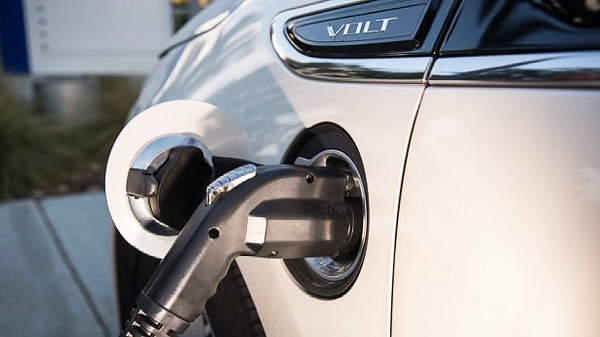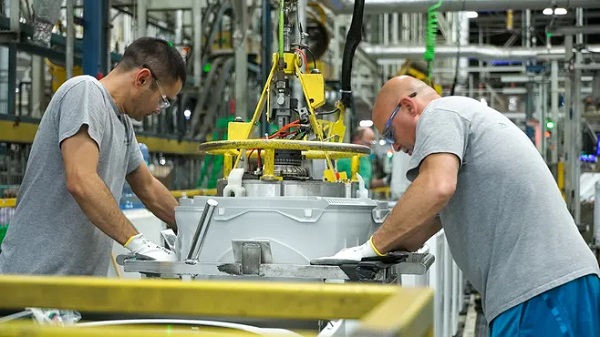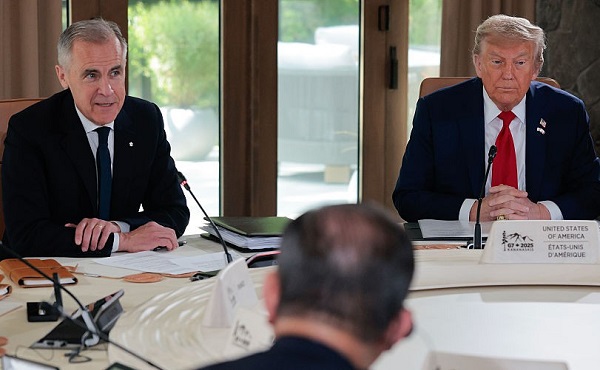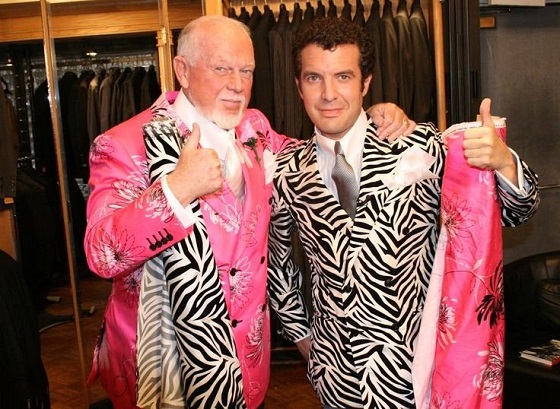Automotive
Electric vehicle sales are falling hard in BC, and it is time to recognize reality.

From Energy Now
By Barry Penner
Get the Latest Canadian Focused Energy News Delivered to You! It’s FREE: Quick Sign-Up Here
British Columbia’s electric vehicle (EV) sales mandates were created with good intentions, but the collision with reality is now obvious.
Although we are still in 2025, the 26 percent zero-emission vehicle sales mandate is already hitting our dealerships. That’s because it applies to the 2026 model year, and many of those models are starting to arrive across the province now.
While 26 percent sounds moderate compared to 90 percent by 2030, or 100 percent by 2035, as also required by BC law, the facts on the ground are grim.
According to S&P Global Mobility data, EV sales in BC have plummeted to around 15.4 percent as of June 2025, down from nearly 25 percent in mid-2024. This decline happened fast after both federal, up to $5,000, and provincial governments, up to $4,000 in BC, stopped funding their EV rebate programs earlier this year. So, the very incentives that made expensive electric vehicles accessible to middle-income buyers disappeared just when they were needed most.
Government polling shows 60 percent of British Columbians say cost is their biggest barrier to buying electric vehicles. And yet, both levels of government pulled the financial support while maintaining the sales mandates, with penalties of up to $20,000 per non-compliant vehicle. This is not just bad policy, it’s economic punishment for our auto sector.
Flavio Volpe, president of the Automotive Parts Manufacturers’ Association, pointed out the severe consequences for automakers. Federally, failing to meet the EV sales targets could mean astronomical penalties. A company selling 300,000 vehicles a year that misses its target by 10 percent could face a $600 million fine. These are not theoretical risks; they are real and could mean manufacturers reduce their Canadian presence, potentially costing thousands of auto jobs.
And powering an all-electric vehicle fleet is no small task. The organization of which I am chair, the Energy Futures Institute, modelled BC’s electricity needs under the 2035 mandate scenario and found full implementation would require an extra two Site C dams’ worth of electricity. We’ve already been importing 20 to 25 percent of our electricity annually for the past few years, often from fossil fuels, which contradicts our clean energy goals.
Electric vehicles represent an important technological advance, but the path matters. With governments forcing unattainable mandates, they are creating resentment amongst potential buyers and a political backlash against EVs themselves.
Energy Futures recently learned that the BC government is undertaking a technical review of the Zero-Emission Vehicle Act, quietly acknowledging that sales targets are increasingly seen as next to impossible. Under consideration is a change to the targets themselves, along with adjustments to compliance ratios and eligibility rules for plug-in hybrids.
The market shift to regular hybrids, which you don’t plug in, is not supported by rebates, but is happening nevertheless. However, these vehicles, such as the Toyota Prius, are not considered “clean” enough under BC legislation and could attract a penalty of $20,000 each.
This only makes things worse for consumers who are already stretched. Punitive mandates create market distortions, restrict consumer choice, and drive up vehicle prices for everyone, especially lower-income families who rely on affordable used cars.
Instead of accelerating into economically harmful mandates, both provincial and federal governments should recalibrate. Ottawa’s Environment Minister Julie Dabrusin’s statement earlier this month to renew consumer rebates is a good start, if the government is determined to interfere with the marketplace. But rebates alone won’t be enough. We need to slow down, invest in required charging infrastructure, and support market-based innovation, not forced adoption through penalties.
A sustainable energy future for BC and Canada requires smart, pragmatic policy, not economic coercion. Let’s take our foot off the gas and realign our policies with reality, protect jobs, consumer affordability, and real environmental progress. Then we can have a successful transition to electric vehicles.
Barry Penner is chair of the Energy Futures Institute, former president of the Pacific Northwest Economic Region and former four-term B.C. MLA and cabinet minister.
Automotive
Repeal the EV mandate, Mr. Carney

By Dan McTeague
Earlier this month, Donald Trump fulfilled a major campaign promise and struck a blow against environmentalist governance in Canada, all in one fell swoop.
He did this by signing a congressional resolution revoking a waiver granted to California by the Biden Administration that enabled the state to set automotive emissions standards significantly stricter than the national standard. So strict, in fact, that in practice only electric vehicles (EVs) could realistically meet them.
This waiver functioned as a backdoor EV mandate, not just in California, but for all of the United States. That’s because automakers don’t want to be locked out of the most populous state in the union but are also disinclined to build one set of cars for California and another for the rest of the country. Their only option would be to increase their production of EVs, to the exclusion of gas-and-diesel internal combustion engine (ICE) vehicles.
Trump has argued, both during his 2024 campaign and since, that the waiver enabled far-left California to saddle the rest of the country with environmental policies it had never voted for and couldn’t repeal. That view helped him win back the White House.
But what does this have to do with Canada? Donald Trump has no power over our own EV mandate. The law of the land in Canada, though it was barely discussed in this spring’s federal election, beyond a last-minute pledge from Pierre Poilievre to reverse it, is still that by 2035, 100 per cent of new light-duty vehicles sold in Canada (including passenger cars, pickup trucks, and SUVs) must be electric.
It doesn’t sound like Mark Carney’s Liberals have any intention of changing course from this Trudeau-era policy — even though new EVs sold in Canada have been falling as a share of overall purchases. To stay on track for 2035, the mandate stipulates, 20 per cent of new cars sold in Canada next year must be EVs. Last year just 13.7 per cent were. And, as Tristin Hopper noted recently, “these sales are disproportionately concentrated in a single province … Of the 81,205 zero-emission vehicles sold in Canada in the last quarter of 2024, 49,357 were sold in Quebec.”
That doesn’t bode well for a national mandate. And Trump’s move further complicates the Liberals’ EV mandate, which has always been presented as an investment opportunity as well as a chance to reduce global carbon emissions. Our federal and provincial governments (particularly Ontario and Quebec) have bet very big on EVs dominating the future. Last year, the Parliamentary Budget Officer estimated that public investment in EVs exceeded $52 billion. Much of that money has gone towards subsidizing the manufacture of EVs in Canada.
Except there just aren’t enough Canadian consumers to justify that expense. The scheme has always hinged on there being a robust EV market south of the border. The Canadian Vehicle Manufacturers Association reminds us that “vehicles are the second largest Canadian export by value, at $51 billion in 2023, of which 93 per cent was exported to the U.S.”
The assumption was that existing avenues of trade would remain essentially unchanged. Even leaving aside concerns about what our future trade relationship with the United States will be, the end of America’s backdoor mandate — and with it, any reason to believe there will be a serious market for EVs in the U.S. — exposes our current EV policies as a bum deal.
Of course, there was never a strong case for attempting to turn Canada into a global EV superpower. There’s a reason Canadian consumers remain skeptical of them. EV batteries don’t perform well in the frigid temperatures for which our country is famous. In cold weather, they charge slowly and then struggle to hold the charge.
Our already-stressed electrical grid isn’t ready for the extra demand that would come with widespread EV adoption, especially considering the Liberals’ desire to progressively decarbonize the grid. And we have nothing like the infrastructure we would need to support this transition.
These roadblocks have now become so obvious that even the automakers, the main beneficiaries of both taxpayer-funded largesse and the mandates themselves, have started saying so. “The fact is these EV sales mandates were never achievable,” read a recent statement by the Alliance for Automotive Innovation, which represents Toyota, GM, Volkswagen, and Stellantis. Ford Canada CEO Bev Goodman has described the mandate as unrealistic and called for its repeal. Kristian Aquilina, president of GM Canada, has said the same.
Whether they realize it or not, our political leaders will have to face up to this reality, and sooner rather than later. Their best option is also the most straightforward one. There’s no reason for us to keep throwing good money after bad money, nor to force an unwanted product on Canadian consumers.
You can do it, Mr. Carney. Repeal the EV mandate.
Automotive
Carney’s exercise in stupidity

 By Dan McTeague
By Dan McTeague
This past Tuesday, the Conservative Party put forward a motion in parliament calling on the Liberal government to immediately end their ban on gas-and-diesel driven Internal Combustion Engine (ICE) vehicles, which will take full effect in 2035.
Arguing for the motion, Melissa Lantsman rightly said, “Nobody is denying people the choice to drive an electric car. There is nothing wrong with that. What is wrong is the government mandating that everybody drive an electric car.”
Unfortunately for all of us, MPs voted 194-141 to keep the EV mandate in place.
The vote itself is unsurprising, since, despite Mark Carney’s campaign-long insistence that he shouldn’t have to answer for the policies of his predecessor, he was a Trudeau advisor and confidant for years, and there is virtually no daylight between their governments on any major issue.
Still, this will be the first time that many Canadians even hear about the ICE ban, the implementation of which begins in earnest on January 1st, just about six months from now. At that time, the government will mandate that 20 per cent of all new light-duty vehicles (passenger cars, SUVs, and pickups) must be classified as “zero-emisson,” or Electric Vehicles (EVs).
How, you might ask, does the government expect automakers to ensure that, come January, one-out-of-five car-buying Canadians will choose to purchase an Electric Vehicle? Especially since consumers have been skeptical of EVs thus far, with just 13.7 per cent sold in Canada last year.
(And, as Tristin Hopper recently pointed out, even that number is misleading. “These sales are disproportionately concentrated in a single province…. Of the 81,205 zero-emission vehicles sold in Canada in the last quarter of 2024, 49,357 were sold in Quebec.” That’s 60 per cent!)
Well, the answer to that question is that manufacturers will be required to submit annual reports to the Ministry of Environment and Climate Change, detailing their compliance with the government’s EV targets. If they don’t meet their EV sales quota, they will face significant financial penalties.
To avoid those penalties, automakers will be forced into one option. As Conservative MP Cheryl Gallant explained, “How will carmakers ensure they sell enough electric vehicles? They will do it by drastically raising the price of internal combustion vehicles!”
That’s right, their only option will be to start increasing the price of the cars and trucks Canadians want to buy, in order to force us to buy ones we don’t want to buy.
This is madness.
To reiterate what I’ve said over and over and over again, the Liberals’ EV mandate is bad policy.
It forces Canadians to buy a product that is expensive. EVs cost more than ICE vehicles, even factoring in the government subsidies on which the EV industry has perpetually relied. Ottawa’s $5,000-per-EV rebate program ran out of money six months ago and was discontinued, at which time EV numbers really began to fall off, which is why the Liberals stated desire to toss more tax dollars at bringing it back.
And it forces us to buy a product that is poorly suited for Canada. EV batteries are bad at holding a charge in the cold, and are just generally less reliable.
We don’t have the infrastructure to support this EV transition. Our electrical grid is already strained, and doesn’t have the capacity to support millions of EVs being plugged in nightly, especially as the Trudeau/Carney Liberals progressively push us to replace reliable energy sources, like oil and natural gas, with unreliable “renewables.”
On top of all that, where do they think we’re going to get all of these glorified golf carts they’re trying to force on the Canadian public? Even with the estimated $52 billion that the Trudeau and Ford governments have thrown at the industry to subsidize the manufacture of EVs in Canada, we don’t make anywhere near enough EVs to support a full-transition.
That’s likely why left-leaning outlets have started calling on Mark Carney to lift the tariff on Chinese EVs. Taking advantage of EV mandates might be smart business for China — flood the markets of gullible nations with EVs which are cheaper than what domestic manufacturers can produce, and then jack up the price once the mandates are fully implemented and they have no competition from either traditional vehicles or other EV companies.
But us going along with that scheme is the definition of bad business. Which is probably why our automakers have started to admit that the mandates are unrealistic and call for them to be repealed.
Tuesday’s vote went the wrong way for Canadians, but kudos to the Conservatives for bringing this motion forward in the first place. I only wish they had started talking about this sooner. A national campaign would have been the perfect time to call the country’s attention to a policy which people are only vaguely aware of and which, if enacted, will make all of our lives harder and more expensive.
But there’s no time like the present. The more Canadians hear about these EV mandates, the more they hate them. If we make enough noise about this, we might just be able to change course and avert disaster.
Here’s hoping.
Dan McTeague is President of Canadians for Affordable Energy.
-

 Automotive2 days ago
Automotive2 days agoRepeal the EV mandate, Mr. Carney
-

 Business2 days ago
Business2 days agoTRUMP TARIFFS: GE Appliances brings washer manufacturing back from China
-

 Business2 days ago
Business2 days agoChina still squeezing rare-earth exports despite U.S. pact
-

 National1 day ago
National1 day agoQuebec bans gender-confused inmates from requesting prison of their choice
-

 Business1 day ago
Business1 day agoTrump terminates trade talks with Canada over digital tax on U.S. tech
-

 Business1 day ago
Business1 day agoCarney’s Digital Tax Debacle: How Ottawa Triggered a Trade Fallout with Washington
-

 Business2 days ago
Business2 days agoTrump announces end to trade negotiations with Canada over costly digital service tax
-

 Bruce Dowbiggin2 days ago
Bruce Dowbiggin2 days agoDon & Rick: Canadian Icons, Mixed Messages, Lasting Impacts







